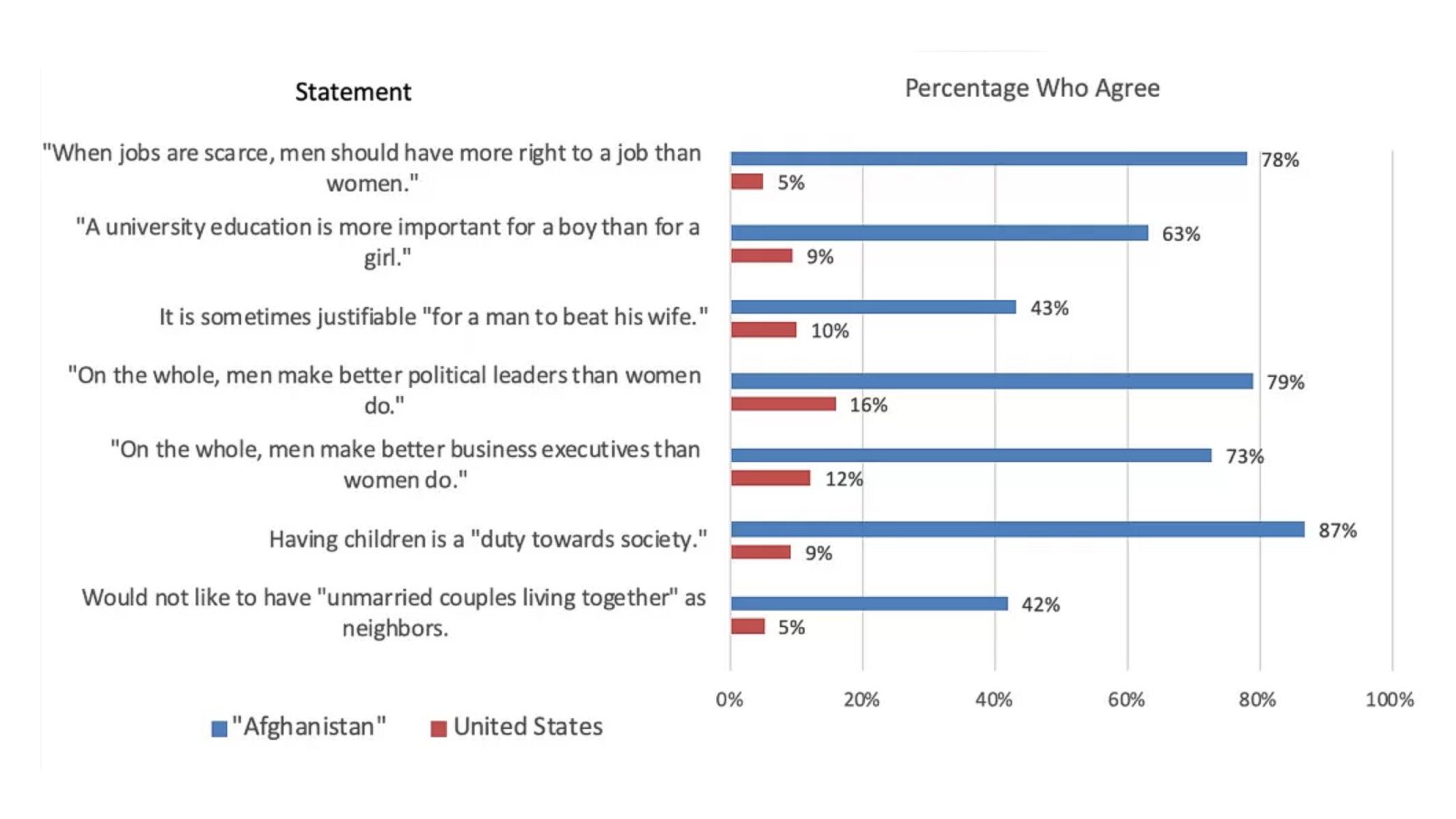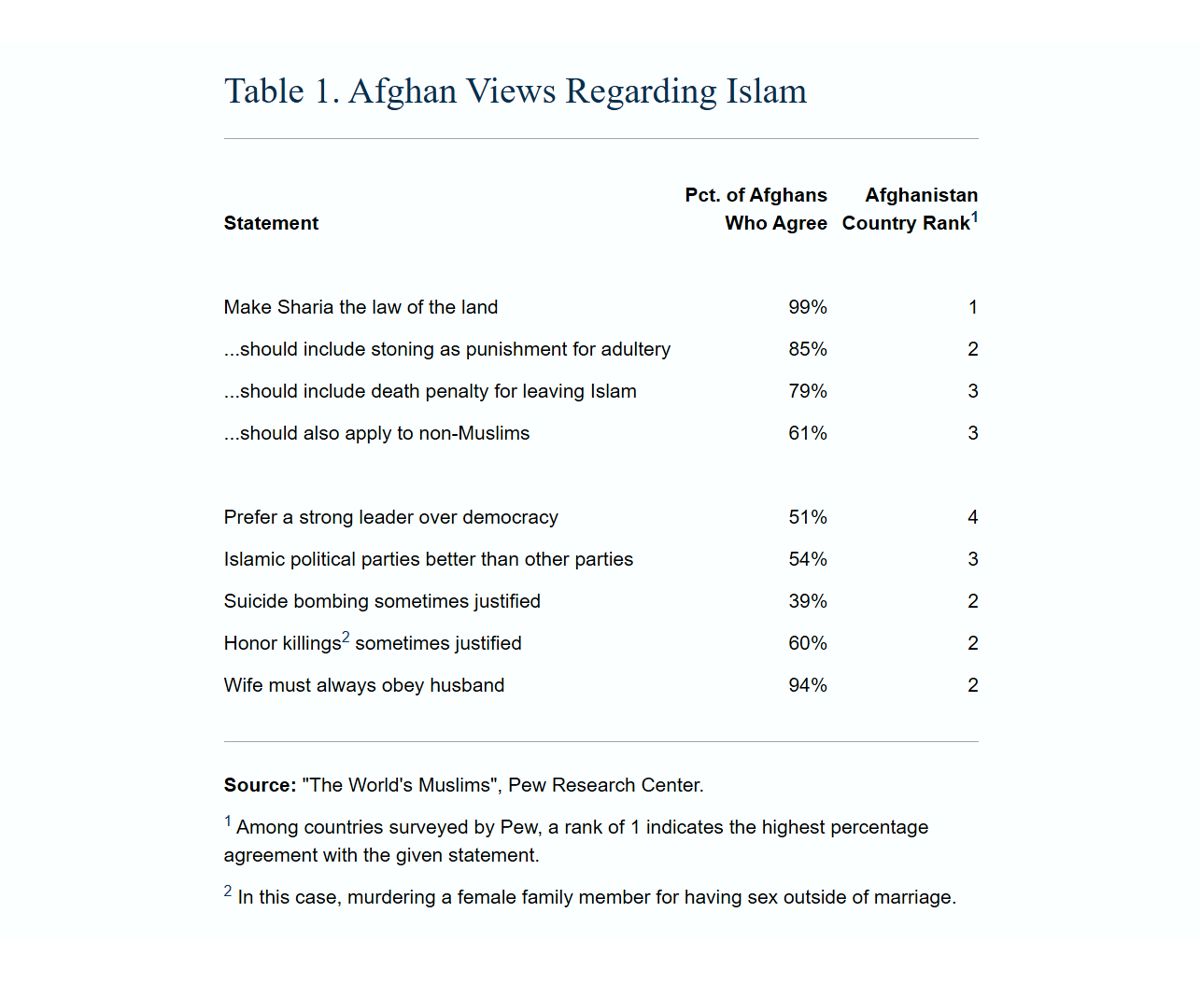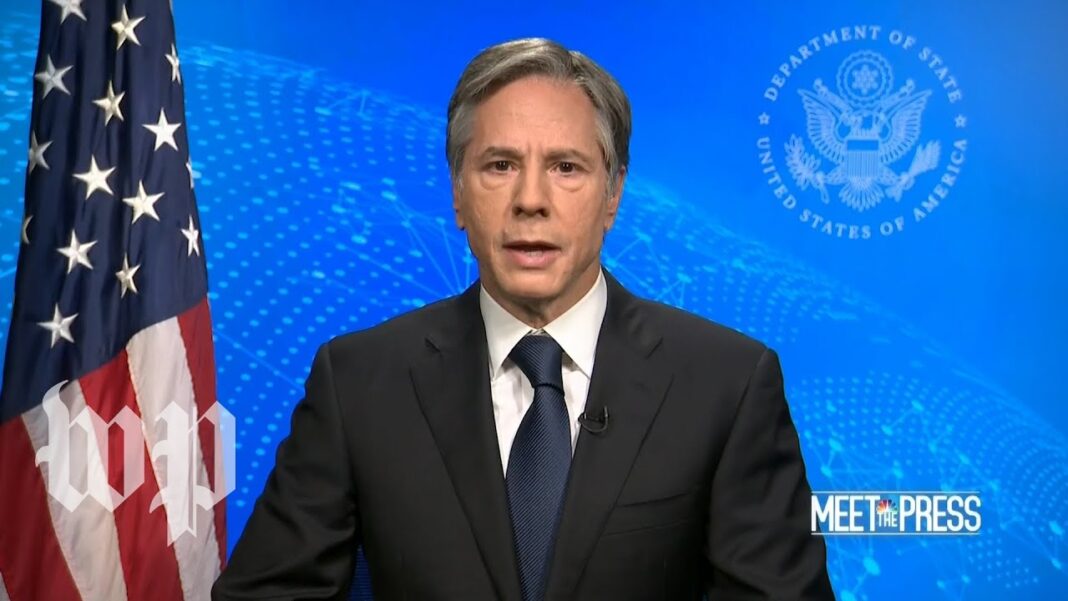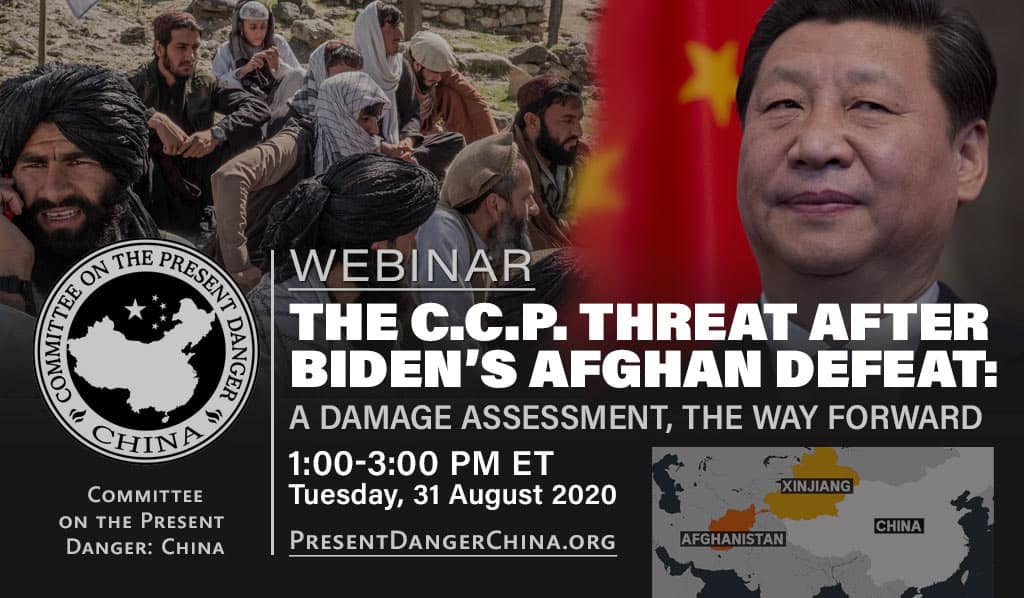Sharia Supremacism Is The New Threat We Face
Frank Gaffney, host of “Securing America,” talks to Steve Bannon about the danger of Islam and Sharia Law:
“What worries me … [is] specifically the idea that we have allowed, in fact enabled, the metastasizing of this threat from what I call Sharia supremacism… We still don’t really understand that that is the threat… Look at what’s going on as we speak with people talking about, well, that there’s a new kinder gentler Taliban that we are dealing with here. Or that the Taliban doesn’t have anything to do with ISIS-K or al-Quaida. This is rubbish. These are people who have one thing in common (by the way, they have it in common with the mullahs of Iran as well) and that is sharia [Islamic law]. They have their differences and theyt have their fractious moments… but for the moment, we ARE the common enemy.”
Bannon Explodes On The Hoards Of Unvetted Afghans Brought To America
Afghans in America: A Potentially Severe Culture Clash
As the Biden administration contemplates bringing tens of thousands (or maybe even hundreds of thousands) of Afghan migrants into the U.S., the president should remember that our capacity to assimilate newcomers is limited. Look no further than Somalis in Minneapolis or Hmong in Wausau for examples of immigrant groups who have not blended into the social fabric, even with decades of time to do so.
Refugees from developing countries are especially likely to present assimilation challenges. Unlike immigrants who arrive through selective channels, such as skill-based visas, refugees can have personal values and outlooks more typical of their compatriots back home. This would be especially true of refugees from Afghanistan if, as expected, the Biden administration resettles not only battlefield interpreters, but also Afghans with weaker claims of American loyalties, such as local drivers hired by media companies. (Some Afghan migrants are arriving with non-refugee visas, but for simplicity I describe them here collectively as refugees.)
To the extent that Afghan refugees hold views similar to Afghans in general, we can get a sense of their values from the World Values Survey (WVS). The WVS did not conduct interviews in Afghanistan. However, it did interview surrounding countries with ethnic groups that overlap with those in Afghanistan. By taking the responses of Pashtuns in Pakistan, Tajiks in Tajikistan, and Uzbeks in Tajikistan and Kyrgyzstan, and then weighting them to reflect the ethnic distribution in Afghanistan, we can obtain a reasonable approximation of what the average Afghan believes. We can also compare those beliefs to American values as measured by the WVS.
The statements listed above were selected to reflect views on women and gender roles, since those topics are often the focus of Western human rights groups. Clearly, the gaps between the U.S. and Afghanistan are quite large. Even one of the smaller gaps is jarring — proportionally four times as many Afghans as Americans believe that wife-beating is sometimes justifiable.
The WVS questions are limited in that they are designed to be asked of societies across the globe. To examine issues specific to Muslim countries in the developing world, we can turn to the Pew Research Center’s global survey of Muslims, which was conducted between 2008 and 2012 and included Afghanistan. Table 1 summarizes the percentage of Afghans who agree with various statements, along with Afghanistan’s rank among the countries surveyed by Pew. A rank of 1 indicates the highest percentage of agreement with each statement. (The survey covered Muslims in 39 countries overall, but individual questions usually had fewer than 39 responding countries.)









